Thông Điệp Ngày Đại Lễ Vu Lan Song Ngữ
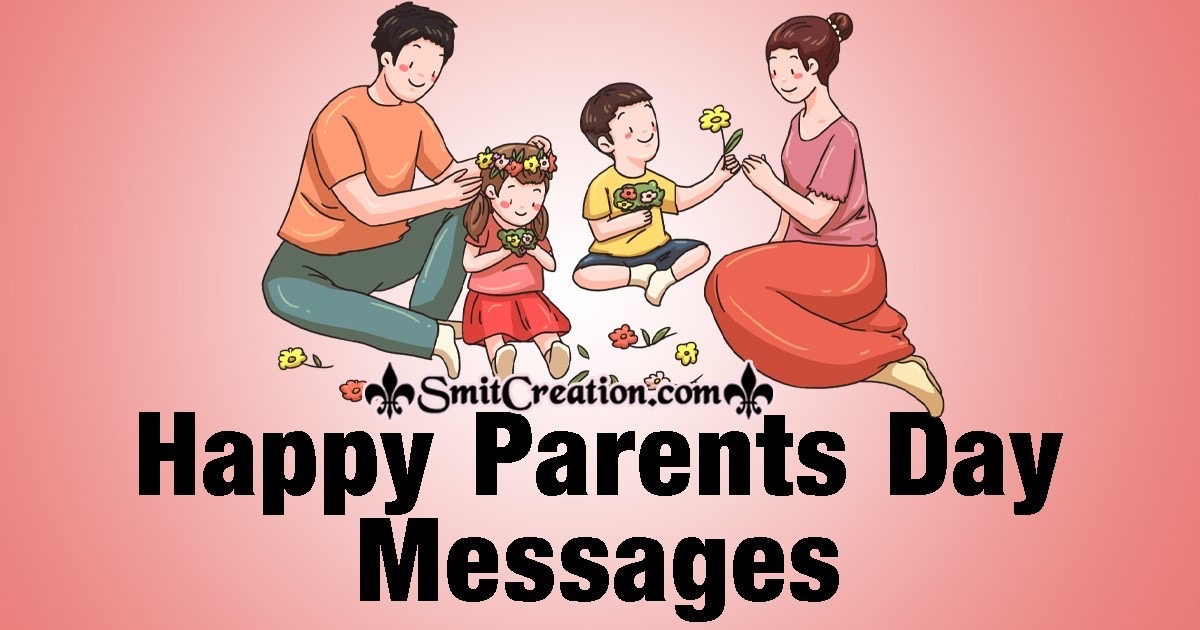
Hôm nay, ngày đại lễ Vu Lan Báo Hiếu nhắc nhở chúng ta luôn nhớ về công ơn sinh thành và dưỡng dục của cha mẹ. Nếu mình ở xa cha mẹ, bằng phương tiện truyền thông ngày nay, mình có thể gọi điện thoại và thăm hỏi sức khỏe của cha mẹ. Nếu mình ở gần cha mẹ, mình thường xuyên thăm viếng cha mẹ khi cha mẹ già và yếu. Dù chúng ta là những Phật tử hay không phải Phật tử, dù chúng ta là người có đạo hay không có đạo. Khi mùa Vu Lan Báo Hiếu trở về, chúng ta đều nhớ đến tinh thần hiếu đạo, hiếu thảo, tri ơn, nhớ ơn, uống nước nhớ nguồn giữa mình và người, giữa mình và muôn loại ngay bây giờ và ở đây trong cuộc sống hiện tại.
NAM MÔ BỔN SƯ THÍCH CA MÂU NI PHẬT
Kính bạch Chư tôn đức Tăng Ni
Kính thưa quý Phật tử đồng hương,
Chúng ta đều biết trong đạo Phật hằng năm có nhiều lễ hội quan trọng mang đậm tính nhân văn, văn hóa, tâm linh, giáo dục, đạo đức, uống nước nhớ nguồn, tạ ơn, tri ơn, và nhớ ơn, v.vv… Thật vậy, với các ý nghĩa trên, Vu Lan Báo Hiếu là một trong những ngày lễ quan trọng nhất của Phật giáo được trình bày như sau:
Thứ nhất, Vu Lan Báo hiếu nhắc nhở chúng ta nhớ đến tinh thần uống nước nhớ nguồn, cụ thể là tinh thần tri ơn và nhớ ơn của mình đối với công ơn sinh thành dưỡng dục của Cha Mẹ; đối với ánh sáng tuệ giác của Phật Bảo, Pháp Bảo, Tăng Bảo; đối với công ơn giáo dục và dạy dỗ của các Thầy Cô giáo đạo học và thế học, những người có khả năng trao truyền nguồn tri thức và trí tuệ; đối với những nơi chúng ta sinh ra, lớn lên, sinh sống, và làm việc; đối với các anh hùng dân tộc, những người có công dựng nước và giữ nước từ nghìn xưa cho tới ngày nay; đối với các học sinh, sinh viên, và các đệ tử, những người có khẳ năng tiếp nối và thắp sáng nguồn tri thức và trí tuệ trong hiện tại và trong tương lai; đối với các con cháu, những người có khả năng nối dõi tông đường; và đối với pháp giới chúng sinh trên khắp hành tinh này.
Thật vậy, tất cả muôn sự muôn vật trên thế gian này đều có các mối tương quan, tương duyên, tương thuộc, tương kết, và tương tức với nhau rất mật thiết. Với cái nhìn sâu sắc và sự thực tập thiền quán, chúng ta biết các nguồn tuệ giác tri ơn và nhớ ơn luôn ở trong ta và chúng không bao giờ ở ngoài ta. Khi sinh ra và lớn lên trong cuộc đời này, nếu không có chúng, thì mình không thể nào trở thành con người thông minh, tài đức, và đức hạnh cho nhân thế. Do đó, mình là sự tiếp nối và thừa kế của Ông bà tổ tiên, của Cha Mẹ, của Tam Bảo, của Thầy tổ, v.v… Mình có thể mang tất cả đi về tương lai sáng đẹp và huy hoàng qua Pháp học, Pháp hành, Pháp hiểu, Pháp hỷ, và Pháp lạc.
Trong đời sống hằng ngày, để trở thành các nguồn yêu thương và hiểu biết cho số đông, là những người tu học giỏi, mình phải biết hoan hỷ thông cảm và mỉm cười cho chính mình và cho người khác. Mình biết cách thở, cách đi, đứng, nằm, ngồi, suy nghĩ, nói năng, và hành động một cách chánh niệm và tĩnh giác để đem lại an vui và hạnh phúc cho chính mình và cho người khác. Mình biết cách thực tập ái ngữ và lắng nghe một cách hiệu quả và thiết thực để xây dựng hạnh phúc cho số đông ngay trong đời sống hiện tại.
Thứ hai, Vu Lan Báo Hiếu còn nhắc nhở chúng ta nhớ đến đạo lý nhân quả và đạo lý hiếu thảo làm người giữa mình và những người thân, người thương, và quyến thuộc của mình. Ca Dao Việt Nam có ghi:
“Nếu mình hiếu với mẹ cha
Thì sau con hiếu với ta khác gì.
Nếu mình ăn ở vô nghì
Đừng mong con hiếu làm gì uổng công.”
Theo đạo lý nhân quả, và theo những lời Phật dạy, trong đời sống hiện tiền, Cha Mẹ là hai vị Phật sống trong nhà. Đức Phật dạy rằng chúng ta sinh ra đời không gặp Phật, nhưng chúng ta khéo tôn thờ, chăm sóc, và phụng dưỡng Cha Mẹ đúng với chánh Pháp, khuyên Cha Mẹ làm điều lành, tránh điều ác, khuyên Cha Mẹ biết cách nương tựa Tam Bảo và thực tập Năm Điều Đạo Đức, thì chúng ta đã gặp Phật ngay trong hiện đời. Khi hiểu và thực tập được như vậy, thì chúng ta đích thực là những người con hiếu thảo với Ông bà và Cha Mẹ của chúng ta. Ngược lại, khi cha mẹ còn sinh tiền, chúng ta không biết hiếu thảo với cha mẹ, không dành thời gian thích hợp để chăm sóc cha mẹ khi cha mẹ già yếu. Đợi cha mẹ qua đời, chúng ta mới bắt đầu thăm viếng và khóc than, lúc đó đã muộn rồi. Đôi lúc, để che mắt thế gian, chúng ta quan tâm tới việc tổ chức tang lễ quá lớn cho cha mẹ. Sau khi tổ chức tang lễ cho cha mẹ xong, chúng ta bị mắc nợ, gây ra việc kình cãi và bất hòa giữa mình với những người thân người thương trong gia đình. Đó là điều không đúng với chánh Pháp và không có hiếu thảo với cha mẹ chúng ta nên tránh.
Thứ ba, sau ba tháng An Cư Kiết Hạ, theo truyền thống Phật giáo Bắc truyền, Vu Lan Báo Hiếu nhắc nhở chúng ta nhớ đến ngày Đức Phật hoan hỷ; ngày mọi người làm mới thân tâm; ngày chư Tăng Ni được một tuổi đạo; ngày quý cư sĩ Phật tử có cơ hội tạo phước và cúng dường đồ ăn, thức uống, đồ mặc, đồ ngủ nghỉ, thuốc men, phương tiện đi lại cho người xuất gia; và ngày mọi người có duyên lành dâng y công đức Kathina.
Cuối cùng, ngày lễ Vu Lan Báo Hiếu bao gồm ngày lễ Bông Hồng Cài Áo do Thiền Sư Thích Nhất Hạnh khởi xướng và nó bắt nguồn vào thập niên 1960 cho tới nay qua các ý nghĩa và màu sắc khác nhau của hoa hồng:
1. Hoa hồng màu vàng tượng trưng cho những người xuất gia mang màu quỳnh y công đức và giải thoát, họ xem tất cả pháp giới chúng sinh đều là cha là mẹ, và là Bồ-đề Pháp lữ và quyến thuộc của mình.
2. Hoa hồng màu đỏ tượng trưng cho những ai còn đầy đủ cả cha và mẹ.
3. Hoa hồng màu hồng tượng trưng cho những ai mất cha hoặc mất mẹ.
4. Hoa hồng màu trắng tượng trưng cho những ai mất cả cha và mẹ.
Dù hoa hồng mang màu sắc gì khi được cài lên ngực đều nhắc nhở chúng ta biết rằng khi cha mẹ còn sống ở đời, mình sống có lòng hiếu thảo với cha mẹ và khi cha mẹ qua đời mình ý thức lo tang lễ cho cha mẹ đúng với chánh Pháp. Mình là hơi thở, là nụ cười, là sự sống, là bông hoa tươi mát, và là sự tiếp nối và kế thừa vui vẻ và tốt đẹp cho cha mẹ. Cha mẹ luôn có mặt trong mình. Bằng sự thực tập chánh niệm và tĩnh giác, mình có thể mang cha mẹ đi về tương lai một cách tươi sáng trên thế gian này. Do đó, mình ý thức rõ không thể nào tách rời cha mẹ ra khỏi mình.
Hôm nay, ngày đại lễ Vu Lan Báo Hiếu nhắc nhở chúng ta luôn nhớ về công ơn sinh thành và dưỡng dục của cha mẹ. Nếu mình ở xa cha mẹ, bằng phương tiện truyền thông ngày nay, mình có thể gọi điện thoại và thăm hỏi sức khỏe của cha mẹ. Nếu mình ở gần cha mẹ, mình thường xuyên thăm viếng cha mẹ khi cha mẹ già và yếu. Dù chúng ta là những Phật tử hay không phải Phật tử, dù chúng ta là người có đạo hay không có đạo. Khi mùa Vu Lan Báo Hiếu trở về, chúng ta đều nhớ đến tinh thần hiếu đạo, hiếu thảo, tri ơn, nhớ ơn, uống nước nhớ nguồn giữa mình và người, giữa mình và muôn loại ngay bây giờ và ở đây trong cuộc sống hiện tại.
Nam Mô Phật Bảo, Pháp Bảo, và Tăng Bảo Thường Trú trong Ba Đời và Mười Phương.
Kính chúc quý vị an trú và thấm nhuần chánh Pháp của Đức Thế Tôn.
https://phapnhan.org/tv/thong-diep-ngay-dai-le-vu-lan/
By Thích Trừng Sỹ
THE MESSAGE OF GREAT CELEBRATION OF VU LAN-PARENTS’ DAY
Namo The Original Master Sakyamuni Buddhaya
Dear Venerable Elder Buddhist Monks and Nuns
Dear Dharma Sisters, Brothers, and everyone,
We all know that in Buddhism every year, there are many important festivals bearing deep humanity, culture, spirituality, education, virtue, drinking water to remember the source, thanksgiving, gratitude, remembrance, etc. With the above-mentioned meanings, Vu Lan – Filial season – Parents’ Day is one of the most important festivals of Buddhism presented as follows:
First, Vu Lan - Filial season reminds us to remember the spirit of drinking water to remember the source, namely our spirit of grateful kindness, thanksgiving, and remembrance to the gratitude of the parents’ nurture and upbringing; to the light of insight of Buddha Jewel, Dharma Jewel, and Sangha Jewel; to the gratitude of education and teaching of Dharma as well as secular teachers, those who have the ability to transmit the source of knowledge and wisdom; to the places where we were born, grow up, live, and work; to the national heroes, those who have the merits to found and defend the country from ancient time until today; to students and disciples, those who have the ability to connect and light up the source of knowledge and wisdom in the present and in the future; to children and descendants, those who have the ability to connect the family temple; and to the dharma realms of beings all over the planet.
Indeed, all living things and living beings in this world have interrelationships, interdependent origination, interdependent arising, and inter-being very closely. With the deep vision and practice of meditative contemplation, we know the insightful sources of grateful kindness and gratitude are always in us and they are never outside us. When born and growing up in life, without them, we cannot become intelligent, talented, and virtuous people for the world. Therefore, we are the continuation and inheritance of the ancestors, the parents, the Three Jewels, the Patriarchs, Teachers, etc. We can bring all to the future brightly, beautifully, and gloriously through Dharma learning, Dharma practice, Dharma understanding, Dharma joy, and Dharma happiness.
In everyday life, in order to become the sources of love and understanding for the many, as well-trained practitioners, we have to happily sympathize and smile for ourselves and other people. We know how to breathe, how to walk, stand, lie down, sit, think, speak, and act in mindfulness and awareness to bring joy and happiness to ourselves and other people. We know the way to practice loving speech and deep listening effectively and practically to build happiness for the many right in the present life.
Second, Vu Lan – Parents’ Day also reminds us to remember the morality of cause and effect and the morality of filial piety to make people between us and our loved ones and relatives. Vietnamese folk song has stated:
“If we are filial with our parents,
then in near future, our children are also filial with us in the same way.
If we are not filial with our parents,
do not expect our children to be filial with us at all.”
According to the morality of cause and effect, and according to the Buddha’s teachings, in the present life, the parents are two Buddhas living in the house. The Buddha has taught that we were born in the world without seeing the Buddha, but we skillfully worship, take care of, and serve our parents with the right Dharma, advise the parents to do good, avoid evil, advise the parents to know the way to take refuge in the Triple Gem, and practice the Five Ethical Trainings, then we have met the Buddha right in life. When understanding and practicing so, we are really filial children with our grandparents and parents. On the contrary, when parents still live in the world, we do not know the filial way with our parents, not spend proper time taking care of the parents when the parents grow old and weak.
Waiting for our parents to pass away, we start visiting and crying, at that time, it is too late. Sometimes, to cover everyone eyes, we care about holding the funeral for the parents too big. After finishing organizing the funeral for the parents, we get indebted, causing argument and discord between us and our loved ones. It is not correct with the right Dharma and not filial with our parents; therefore, we should avoid that.
Third, after three months of Summer Retreat or Rains Retreat (Vassa Vassa), according to the tradition of Mahayana Buddhism, Vu Lan - Filial Piety – Parents’ Day reminds us to remember the day when the Buddha is happy; the day when everyone renews and refreshes the body and mind; the day when the monks and nuns get one more age of the Dharma; the day when lay devotees have a good chance to create the blessing and make offerings of food, drinks, robes, sleeping things (blankets, pillows, beds), medicine, transportation to monastic people; and the day when everyone has a wholesome opportunity to offer the robes of the Kathina merit.
Finally, Vu Lan - Filial Piety – Parents’ Day includes the ceremony day of the Roses pinned on the pockets initiated by Zen Master Thích Nhất Hạnh and it has originated in the 1960s so far through the different meanings and colors of the roses.
1. Yellow roses symbolize the monks and nuns putting on the saffron robes of the merit and deliverance, consider all the dharma realms of sentient beings as their parents, as their Bodhi Dharma friends and relatives.
2. Red roses symbolize those who have enough both parents.
3. Pink roses symbolize those who lose either father or mother.
4. White rose symbolizes those who lose both parents.
No matter what color the roses bring when being pinned on our chests, remind us to know that when the parents are still in life, we live filially with the parents and when the parents pass away, we are aware to take care of the funeral for the parents in accordance correctly with the right Dharma. We are breaths, smiles, life, fresh flowers, and the good and happy continuation and inheritance for our parents. The parents are always in us. With the practice of right mindfulness and awareness, we can bring our parents to the future stably in this world. Therefore, we are aware clearly that we cannot separate our parents from us.
Today, the great celebration of Vu Lan – Parents’ Day reminds us to remember the gratitude and nurture of our parents. If we are far away from our parents, by the media today, we can make a call to our parents and ask them about their health. If we are near our parents, we often visit our parents when our parents are old and weak. Whether we are Buddhists or not Buddhists, whether we are religious or not religious people. When the Vu Lan – Parents’ Day comes back, we all remember the spirit of the filial Dharma, filial piety, good kindness, gratitude, drinking water to remember the source between us and people, between us and all living things and beings right here and right now in the present life.
Namo the Buddha Jewel, Dharma Jewel, and the Sangha Jewel being permanent in the Three Lifetimes and Ten Directions.
We wish you all to be dwelling in and imbued with the Dharma of the World-Honored One.
https://phapnhan.org/en/the-message-of-great-celebration-of-vu-lan-parents-day/
By Thích Trừng Sỹ
- Đại Lễ Vu Lan Tại Chùa Đại Bảo Trang Nghiêm, Hayward, Cali, Hoa Kỳ PL 2567 - DL2023 Thích Đồng Trí
- Nợ Lê Hứa Huyền Trân
- Một Bà Mẹ Tâm Minh Ngô Tằng Giao
- Lễ Vu Lan, mùa của tình thương! Võ Đào Phương Trâm
- Chùm Thơ Mùa Vu Lan (2023) Minh Đạo
- Chùa Đại Phước tổ chức lễ Vu lan PL.2566 Quảng Ấn
- Hoài Niệm Bạch Vân Nhi
- Mẹ Minh Đức Triều Tâm Ảnh
- Vu Lan – Mùa mở những sợi dây treo ngược HT. Thích Thái Hòa
- Mất Mẹ Phổ Đồng
- Đạo Tâm Thân Ái Khánh Hoàng
- Niệm Khúc Vu Lan Bạch Vân Nhi
- Tản mạn Mùa Vu Lan Thích Nữ Thông Tiên
- Mùa Vu Lan Về, Nhớ Ngọai Vô Ngần! Tâm Lương Đào Mạnh Xuân
- Thơ Chuyển Ngữ Mùa Vu Lan Tâm Minh Ngô Tằng Giao
Đánh giá bài viết này
Cùng tác giả
- Viếng Thăm Chùa Đầu Năm
- Thầy và Đệ Tử Cùng Tu
- Vững Bước Thong Dong
- Lần Đầu Tiên Lá Cờ Mang Biểu Tượng Phật Giáo Được Bay Phất Phới Trên Tàu Hải Quân Hoa Kỳ
- Áp dụng THIỀN TẬP ngay trong đời sống hằng ngày song ngữ
- Hình Ảnh Vu Lan Báo Hiếu Tại Chùa Pháp Nhãn
- Triết Lý Chữ An Trong Phật Pháp Song Ngữ
- Nghi Thức Tụng Kinh Di Giáo Song Ngữ
- Bài Thơ Dâng Cha
- Phật Đản Trong Văn Hóa Và Hòa Bình
Được quan tâm nhất





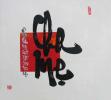





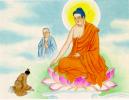



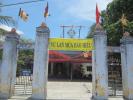




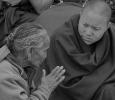

Gửi bình luận của bạn
BÌNH LUẬN BẰNG TÀI KHOẢN FACEBOOK (